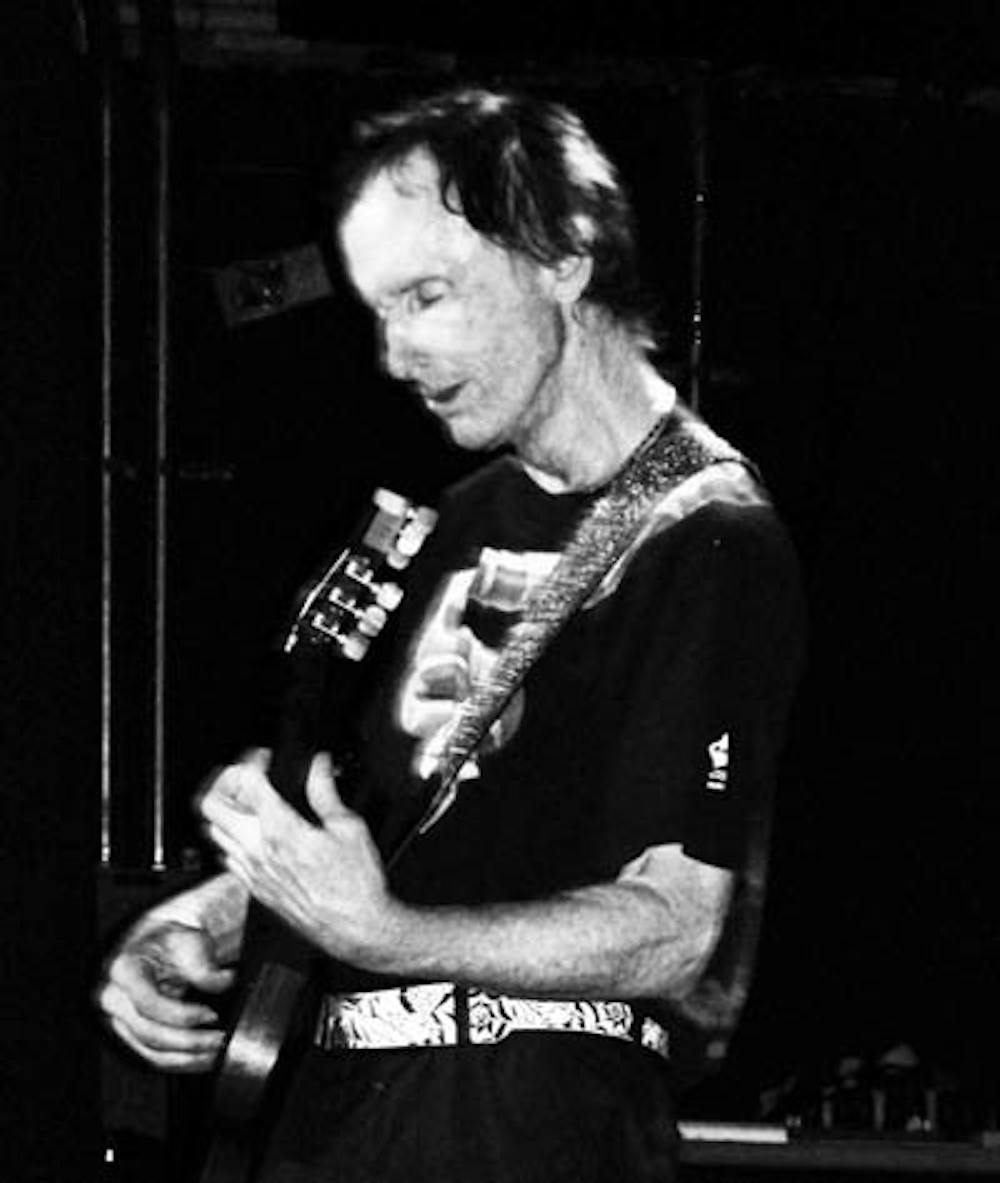It's hard for our millennial minds to grasp the level of social upheaval at the end of the 1960s. America lost its greatest civil rights leader and one of its most promising politicians, students were beaten and killed on college campuses for protesting a war, and between 1967 and 1971, 47,413 service members were killed in Vietnam.
The epoch of race riots and rampant drug use in the streets of San Francisco birthed a musical revolution that provided its soundtrack.
Van Morrison, Aretha Franklin, Janis Joplin and Jimi Hendrix were exploding on the American music scene, while the Beatles and The Who were still leading the British Invasion of American pop. But the band that had the No. 1 song for three weeks at the height of the Summer of Love in 1967 was The Doors, led by charismatic and unpredictable frontman Jim Morrison.
The Doors started on Venice Beach during a chance encounter in 1965 between keyboardist Ray Manzarek and Morrison, who had been film school friends at UCLA.
"I've been writing some songs," said Morrison, who then played what would become the Doors' hit song "Moonlight Drive," as they sat on the sand together watching the Pacific Ocean waves crash. Manzarek was impressed and The Doors were born.
Six years later, The Doors dissolved after Morrison died of a heroin overdose in a hotel in Paris, but not before dominating the American music industry, becoming a lightning-rod for controversy and changing rock 'n' roll forever.
On Thursday night, two members of the rock quartet, guitarist Robby Krieger and Manzarek played a two-hour set of The Doors' greatest hits at the National in downtown Richmond.
The packed crowd at the National was teleported back to those tumultuous years at the end of the '60s. The now old men played a show that dazzled the audience.
The Doors' music sounded like the background music in a bizarre carnival. The church organ and Spanish guitar riffs, infused with influences of traditional central Asian music, and Morrison's drug-inspired lyrics sounded like nothing else being made at the time, and are still strange to hear. But the sound of The Doors, now known as Riders on the Storm, has not been static.
Krieger's guitar style has clearly been influenced by decades of hard rock and heavy distortion.
Enjoy what you're reading?
Signup for our newsletter
The climactic solo at the end of "Light My Fire" sounded like a blend of his 60s sound with guitarists such as Tom Morello of Rage Against the Machine and Eddie Van Halen. Manzarek now plays longer solos with the jam-band sound of Phish.
Though the songs have evolved a bit, they still maintain the spirit of the original Doors. Krieger played the Spanish guitar solo at the beginning of "Spanish Caravan" exactly as it had been played on the recorded version.
Brett Scallions, lead singer of Fuel, took over Morrison's position and did a fair job impersonating the troubled rocker. But Manzarek and Krieger were clearly the stars of the show.
Manzarek revved the crowd up with crashing keyboard solos and witty remarks, at one point calling himself a "sex machine." During an aside between Manzarek and Scallions, Scallions reported that they had decided the three most important things on earth were, "The Constitution, getting a blowjob and getting stoned."
The most impressive moment of the show came at the end, after a rousing performance of "Crossroads" and "Touch Me," a song that reached No. 3 on the charts in 1968. After the band left the stage, the crowd of mostly young adults almost rioted for an encore. The group re-entered and performed "Riders on the Storm," the last song The Doors had ever recorded.
The band departed again, but the crowd remained, screaming and chanting for another return. The band came back for a second encore, the first of the tour thus far, Manzarek said. They exited with "Light My Fire."
The concert was unforgettable. As Krieger and Manzarek bowed at the end of the show, I thought it was the closest I would ever get to the defining years in American history during which The Doors reigned over American rock.
Manzarek often credits the success of The Doors to experimentation with hallucinogenics, saying that they opened the doors of perception.
As I watched the brilliant musicians wow the crowd, I couldn't help but regret that I never had the chance to see Morrison, a man whose life was destroyed at 27 by drugs.
But perhaps that is the real legacy of the 60s. It was a decade with seemingly unstoppable momentum for change. The American youth was involved in a way rarely seen in our history.
But the '60s have been romanticized to the point that we have come to see figures such as Morrison, Hendrix and Joplin, who all had drug-related deaths at age 27, as fallen soldiers in the hippie culture-war.
Contact staff writer David Larter at david.larter@richmond.edu
Support independent student media
You can make a tax-deductible donation by clicking the button below, which takes you to our secure PayPal account. The page is set up to receive contributions in whatever amount you designate. We look forward to using the money we raise to further our mission of providing honest and accurate information to students, faculty, staff, alumni and others in the general public.
Donate Now



